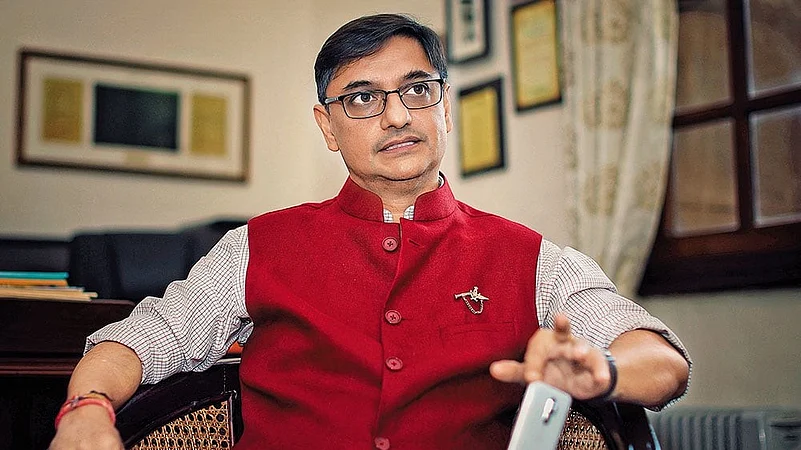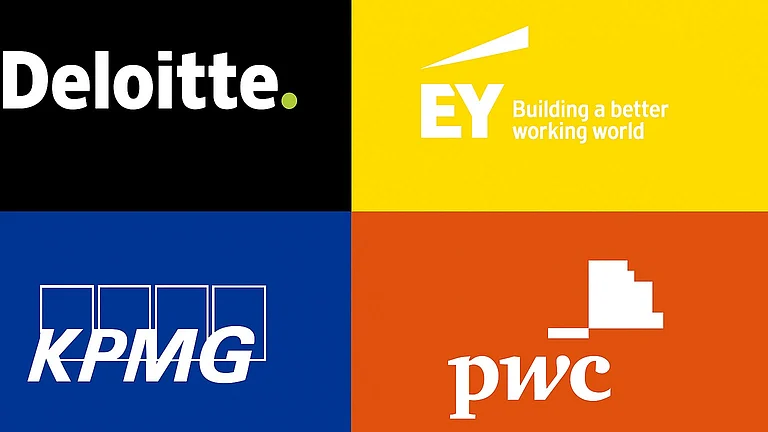India aims to have its own Big Four consultation firms soon. However, to achieve that the country needs to address certain structural and strategic shortfalls and the government also shares a part of the blame, highlighted Sanjeev Sanyal, a Member of Prime Minister Narendra Modi's Economic Advisory Council.
Speaking at the GCC Summit organised by the Institute of Chartered Accountants of India, Sanyal underscored how a combination of outdated procurement norms, restrictive eligibility conditions, and policy oversight has systematically disadvantaged Indian professional services firms from scaling into global advisory brands.
Sanyal listed five major hurdles that India needs to overcome if it aims to create its own Big 4 firms that will be at par with Deloitte, KPMG or PwC.
Government Tendering
Acknowledging the shortcomings on the end of the government and the complexities involved, Sanyal assured that the government is already working on them to ensure Indian firms get a better level playing field to compete with the global Big 4.
“The first problem is really from the government side. And we will try to do something about it, which is to do on the demand side, a government tendering system. Because 40% of it (problems) relates to some sort of public sector tendering, or restrictive clauses, which relate to balance sheet requirement, thresholds, etc,” added Sanyal.
Restrictive Clauses
A second and perhaps more paradoxical challenge lies in the restrictive 'track record' clauses often baked into high-value consulting contracts. According to Sanyal, even though these Big Four firms rely significantly on Indian talent, the country has failed to identify its domestic talent pool. And it is evident from the fact that India has not encouraged any start-up in this domain of business.
“We don't give the individual the benefit of their track record. We give it to Deloitte, PwC, McKinsey and so on. The government's own tendering system does not give the individual the benefit,” Sanyal noted.
This self-reinforcing loop, he argued, means that Indian firms are unable to win the kind of mandates that would allow them to build credentials in the first place. In contrast, foreign firms leverage their global work histories to navigate this requirement with ease, even if their India footprint is limited.
Lack of Multidisciplinary Partnerships
India’s regulatory regime has historically discouraged multidisciplinary partnerships (MDPs) — a model where legal, tax, audit, and strategy experts can operate under a unified brand. This has been a key enabler for global consulting giants, particularly the Big Four, allowing them to offer full-spectrum advisory to governments and corporates alike.
“We had tied ourselves with knots with the OSP (Other Service Provider) regulation. This problem is created by professional bodies attempting to protect their little ponds when the real game is sailing on the big seas,” said Sanyal.
Professional Recognition Deficit
Sanyal was also candid about the lack of formal recognition for certain professions in India’s regulatory landscape. Certain academic degrees; MBA, for instance, is still not a legally codified profession in India that could be considered for working in such a firm. This results in a vacuum created by no defined codes of conduct, no statutory oversight, and no institutional backing in global forums.
Indian firms have restricted themselves to designations like company secretaries and cost accountants, thereby restricting the exposure to vast talent pool. With the changing professional landscape, Indian firms need to acknowledge other professionals to be a part of the consultation team to compete with Big Four.
As noted by Sanyal, “You have specifically excluded here members of professional bodies and people having qualifications other than those prescribed. And they leave out explicitly MBAs. They explicitly leave approved insolvency professionals. You explicitly leave out IT professionals. You want to be in cyber security and you have left them out.”
Minimal Focus on Branding
Beyond structural hurdles, Sanyal called attention to India’s branding failure in the global consulting space. Despite having top-tier talent, many Indian firms struggle to build global recall—a stark contrast to how the Big Four have invested in reputation management, thought leadership, and lobbying across borders. According to him, it is a paradox that the Big Four have the freedom to advertise in India while Indian firms have refrained from proper branding.
Calling it a colonial hangover, Sanyal said, “You are not allowing yourselves to build those brands. Why? What sort of crazy colonialism that we have on ourselves? So, what happens? These foreign brands come here. They function here through proxies.”






























